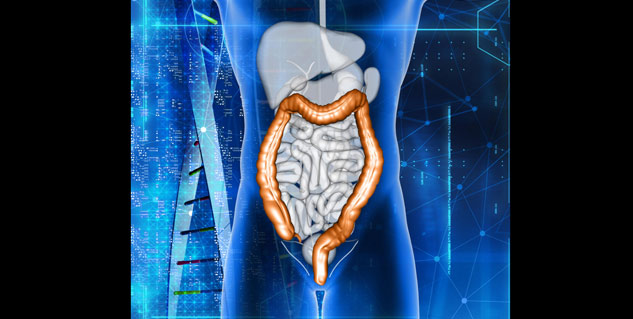
Cancer forms when cells grow uncontrollably. When this happens in the colon and rectum, which are parts of the digestive system, it is called colorectal cancer. It is the third most common type of cancer and the third leading cause of death from cancer in the United States. The country’s obesity prevalence stood at 42.4% in 2017-18. Now, a new study conducted there has found a link between the two. According to it, losing weight can reduce your risk of colorectal cancer. Interestingly, being overweight or obese is a risk factor for this type of cancer.
Table of Content:-
About Colorectal Cancer
The colon and rectum make up the large intestine, and, hence, are part of the digestive system.
- The colon is the five feet long tube that absorbs water and salt from what is left after food passes through the small intestines.
- The rectum, which is the last part of the digestive system, stores the food residue after it passes through the colon. It stores the waste until it passes through the anus.

(Photo Credit: Freepik)
Colorectal cancer, in most cases, starts as small growths on the inner lining of either colon or rectum, according to cancer.org. These growths are called polyps. Not all polyps are malignant, however, some can later lead to cancer. There are certain risk factors for colorectal cancer. These include:
- If a person is overweight or obese
- Less or no physical activity
- Smoking
- Alcohol consumption
- Old age
- Genetics
Also read: Zero Exposure To Sunlight Increases The Risk of Colorectal Cancer, Finds Study
About The Study
The study was undertaken in the United States.
- It involved 154,942 men and women, from the ages of 55 to 74.
- For this study, the researchers assessed changes in the participants’ weight, both gain, and loss. It was assessed over three periods of adulthood and was based on self-reported data. It spanned from 1993 to 2001.
- The study was published by Oxford University Press.
What Did The Study Find Out

(Photo Credit: Unsplash)
Here is what the researchers found out:
- Not maintaining weight, but losing it was associated with the reduction in the risk of developing colorectal adenoma. It is a benign tumour, which is the precursor to colorectal cancer.
- Instead of steady weight, losing it, by 1.1 pounds or more, led to a 46% reduction in the risk of developing colorectal adenoma.
- It was found to be the case for individuals who were overweight or obese initially.
- It was observed more in the case of men as compared to women.
- Not just that, weight gain during adulthood can increase the risk of colorectal adenoma, the study found out.
Also read: Prevent Colon Cancer With These 5 Foods
How To Reduce Weight
Being overweight or obese can attract a host of serious health issues, from diabetes and hypertension to cancers. This study is another proof of why it is crucial to lose weight or maintain a healthy weight. Although appears like a humungous task, there are ways you can employ to do it. Here are some such ways as recommended by the UK’s National Health Service (NHS):
- Do Not Skip Breakfast: Many call it the most important meal of the day. Although experts are divided on this, one thing they might recommend unanimously is that you shouldn’t skip breakfast to lose weight. By doing it, you’ll miss out on vital nutrients. Also, since you’ll get hungry soon and often, it’ll increase your frequency to snack, thus leading to high-calorie intake.
- Eat Enough Fruits & Veggies: Not only are these extremely healthy, but fruits and vegetables also contain high water and fiber content, which make you feel full quickly and for a long time. Hence, load up on a lot of fruits and vegetables while trying to lose weight.
- Physical Activity: Now, no one needs to tell you how important is exercising to lose weight and get fit.
- Drink Enough Water: The majority of our bodies are made up of water. Hence, it’s crucial to stay hydrated. Also, often when thirsty, we confuse it with hunger, leading to the intake of a lot of calories. Hence, drink lots of water to reach your weight loss goal.
Other than these, never quit any foods, as it will only make matters worse by making you crave for them more. Hence, eat everything but in moderation keeping your health and nutrition in mind. To practice portion control, you can use smaller plates. Also, eat slowly and chew your food well. As it takes 20 minutes for the signal to reach your brain that you are full, by eating slowly, you can save yourself those extra calories. Hence, do these things and steer clear of both weight gain as well as colorectal cancer.
Photo Credit: Freepik
Also watch this video
How we keep this article up to date:
We work with experts and keep a close eye on the latest in health and wellness. Whenever there is a new research or helpful information, we update our articles with accurate and useful advice.
Current Version
